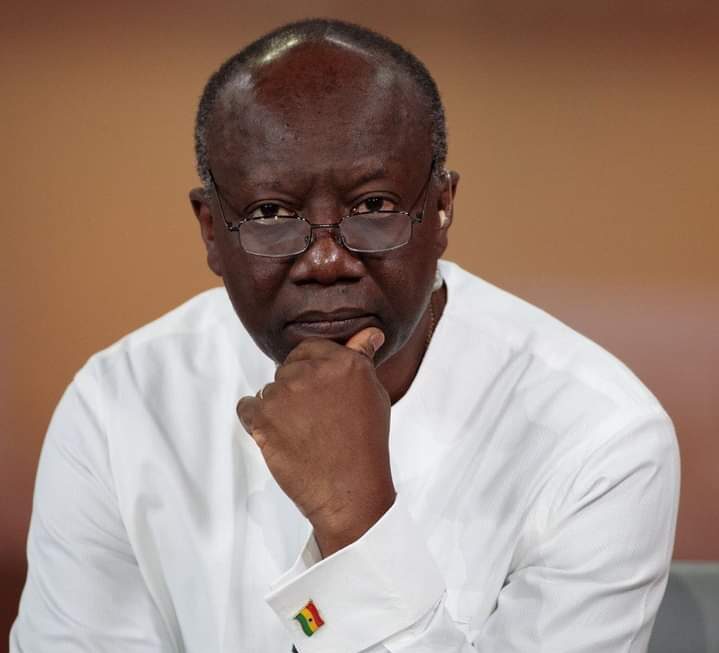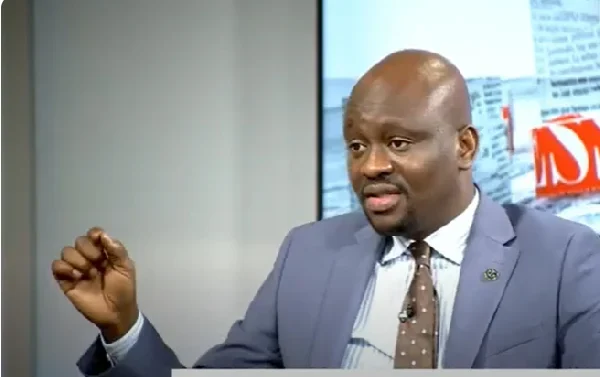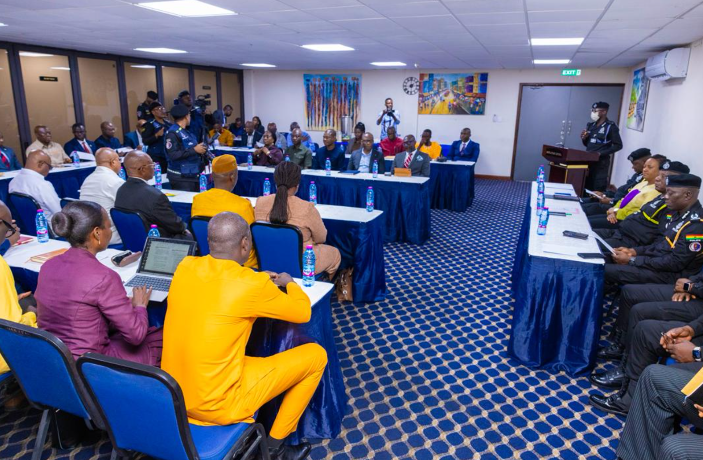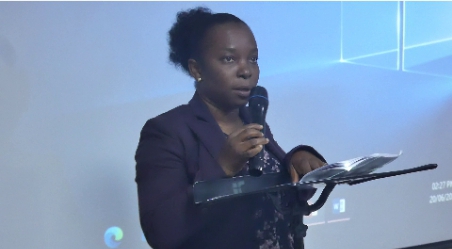The Energy Ministry has revealed that Drive Electric Initiative will prevent Ghana from becoming a dumping ground for internal combustion engine (ICE) vehicles which are becoming outmoded in the European Union and other countries
He said, with Ghana’s ambitious target of achieving renewable energy commitment under the Paris Agreement, the country will not only be spearheading the drive for electric vehicles but leading Africa into clean and sustainable energy production and utilization.
According to the Deputy Minister of Energy Hon. Herbert Krapa who was represented by the Deputy Director at the Ministry of Energy Mrs. Doris Doudu, the recent report of the Intergovernmental Panel on Climate Change (IPCC) makes it clear that the world has less than 10 years to switch to renewable energy to avoid catastrophic climate change. “It is not so much a “lifestyle choice”, but a necessity for survival for everyone to switch to Electric Vehicles (EVs) in the next few years and contribute to the reduction of global warming”.
He acknowledged the Drive Electric Initiative as an innovative move by the Ministry of Energy and the Energy Commission to achieve the following:
- Increase electricity demand sustainably to match supply as a way of partially addressing the electricity generation over capacity;
- To prevent Ghana from becoming a dumping ground for internal combustion engine (ICE) vehicles which are becoming outmoded in the European Union and other countries; and
- To usher in an era of green and sustainable technology for the future and help to deal with environmental pollution as vehicular population grows.
Ghana is blessed with several petroleum discoveries in recent times. Significant amounts of gas discoveries have also been made. Our current installed capacity of 5400MW is significantly more than our current peak demand of about 3700MW. At this current rate, Ghana will need to create demand within the system to take the excess supply of electricity.4 In addition to current oil and gas discoveries, the solar energy potential is enormous and can be harnessed to provide clean and sustainable energy for mobility.
Responding to the question ‘why electric vehicle’? the Minister said, “Climate and emissions concerns have brought the adoption of EVs to the forefront in recent times. The governments of some of the biggest automotive markets around the world have not only declared their intentions but have taken bold steps to embrace EVs to take dramatic steps to curb emissions. France and the United Kingdom (UK) are looking to ban the sale of gas and diesel-powered vehicles beginning 2023 and completely by 2040. China, the largest auto market in the world has publicly started charting a plan for an all-out ban on vehicles powered by internal combustion engines”.
He believes is time for Ghana and Africa to follow suit and make plans towards embracing electric vehicles ourselves in order to harness our enormous solar energy potential productively to meet our climate emission targets while simultaneously providing clean and affordable means of transport.
“The Drive Electric initiative will enable us to increase our electricity intake and as such increase the much-needed demand we need to reduce or eliminate the payment of high-capacity charges while meeting our climate targets”.
Giving a brief information about Electric Vehicles the Minister says studies have shown that it takes about three to ten minutes to fill up a petrol or diesel engine car at a filling station with enough fuel to travel about 300 miles, costing about $35 in the USA. To travel 300 miles in a small EV passenger car would need three full charges of a typical 25kWh battery used to power these vehicles costing about $2.50 per charge in the USA with electricity priced at $0.10 per unit (kWh).
The enormous savings one makes on using EV is so huge compared to petrol or diesel engine vehicle. The low energy cost is one of the attractions of owning an EV.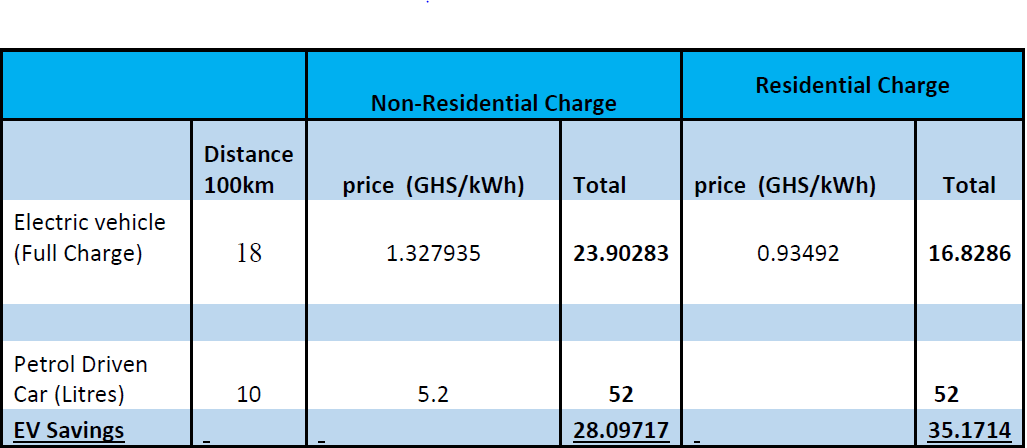
What will the Drive Electric campaign offer Ghana?
- The National Energy Transition Framework as part of its decarbonization activities seeks to promotes and ensure the use of electric vehicle as an alternative cleaner efficient means of transportation.
- The use of electric vehicles in the country will promote renewable energy and also contribute to reduction in pollution. As is already apparent, pollution in cities is killing people, affecting the physical and mental development of children and raising a case for the urgent need to change to EVs, walking, cycling, and electric mass transit.
- Ghana will be one of the first to set an example that West Africa and for that matter Africa can be a part of the success story of electric mobility.
Baseline study by Energy Commission reveals that;
The Energy Commission put together the Baseline Committee made up of;
Ministry of Transport, Ministry of Energy, Energy Commission, Ahenkorah &partners, PURC, KNUST, GRA, ECG, DVLA and GRA to establish a baseline report for the EV industry in Ghana and to equip public and private sector institutions working in the EV space with the knowledge and tools required to steer progress in the e-mobility space in Ghana, drawing on surveys and research in the sector.
Findings from the survey
- Ghana has four level 2 charging stations, available to the public but all are located in Accra. One POBAD charging station located at the A&C Mall in East Legon, two Porsche charging station located at Palace Mall and Kempinski Hotel respectively and Total Energies charging station located at 37.
- Survey results indicate that the skills for EV servicing i.e. maintenance and repair are in short supply in Ghana. Only three (3) EV dealerships reported having functional service facilities and well-trained technicians. But many more dealerships are willing to venture into EV maintenance with the appropriate training and support.
- There is huge gap in terms of awareness of the benefits of e-vehicles and its evident in how most Ghanaians react to owing an EV according to survey results among EV owners.
- According to the International Trade Centre, about 17,660 Plug-in Electric Vehicle (PEVs) were imported into Ghana between January 2017 and December 2021. Imported motorized Electric two & three- wheelers (E2&3W) during this period was 9,431 units with most (98%) of the Battery Electric Vehicles (BEVs) being imported from China.
- In 2021, the Ghana Revenue Authority (GRA) reported that standard hybrid-electric vehicles (HEVs) have the highest representation (91.5%) followed by BEVs at 5.1%. and plug-in hybrid electric (PHEVs) at 3.3%.
He commended the Ministry of Transport for their giant step taken together with other agencies to put together the document to guide the use of EV’s in Ghana in this era.
Source: Apexnewsgh.com/Ghana
For publication please kindly contact us on 0256336062 or Email: apexnewsgh@gmail.com







